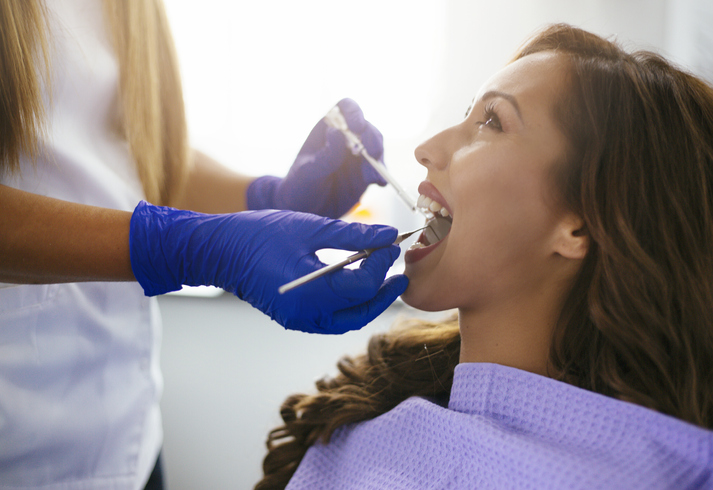
Do your teeth feel a bit sore after a dental cleaning? It’s normal! Here’s what you can do about it.
Suppose you just finished your twice-yearly tooth-cleaning appointment. Great! Your teeth will be better for it. Yet after the visit, your teeth feel more sensitive and maybe even a little painful. Why is that?
A thorough dental cleaning can make your teeth temporarily sensitive, but that just means the cleaning did its job! Tooth sensitivity after a cleaning happens for several reasons, which we’ll explore below. Next time, you can take measures before the cleaning to lessen any sensitivity.
Why your teeth are more sensitive after a dental cleaning
While some people feel completely fine after a dental cleaning, teeth can feel sensitive for the following reasons:
Gum recession. When gums pull away from the tooth, the roots become unprotected. As dental tools probe and clean along the gums, the exposed roots may hurt a bit after the cleaning.
Exposed tubules. Tubules are the hundreds of tiny pores leading to the nerves in your tooth. Those tubules are usually blocked if you have a lot of buildup on your teeth or use toothpaste for sensitive teeth. During a cleaning, the hygienist removes those blockages, leaving the tubules open and the nerves exposed.
Whitening products. Whitening products are a great way to brighten your teeth. However, the product also clears the staining particles in those same tubules. Again, the nerves are exposed during the cleaning, causing your teeth to feel sensitive.
Deep cleaning. To stop the progression of gum disease, your dentist may perform deep cleaning. During this procedure, the dentist cleans plaque and tartar from the pocket between your teeth and gum line, a process known as scaling. The dentist may also do what is known as root planing. In root planing, the roots are smoothed out so they can re-attach to the tooth. Since this treatment involves more than a regular dental cleaning, your gums may become swollen and inflamed afterward.
How long does the sensitivity last?
Sensitivity after a dental cleaning typically lasts no more than a week. Any lingering pain lasting longer than a few days or a week should be reported to your dentist, as it could signal a more serious issue.
Avoid consuming hot or cold drinks and foods to reduce any discomfort following the cleaning. If you must drink a cold or hot beverage, sip it through a straw. Limiting acidic foods such as orange juice, coffee, tea, wine, and alcohol can also help sensitivity.
Rinse your mouth with warm water and a pinch of salt to calm inflamed gums. Brush your teeth gently with a soft-bristled toothbrush. If your gums are extremely sensitive after a cleaning, you might want to skip flossing for a day, but check with your dentist first. Over-the-counter pain medications are also helpful.
If you know your teeth are ultra-sensitive, talk to your dentist about a prescription for a fluoride gel or fluoride rinse to strengthen your teeth. Another option involves applying a fluoride varnish every three or four months. These treatments could reduce sensitivity after a cleaning and ensure the procedure is pleasant, setting you up for better oral health.
Do you need a dental cleaning?
Schedule an appointment at Espire’s Fort Collins, Colorado, location today! Our highly trained dentists can clean your teeth and make it a painless experience! Don’t live near our Fort Collins office? Find one of our other locations near you.
Fort Collins
2117 Custer Drive
Fort Collins, CO 80525

